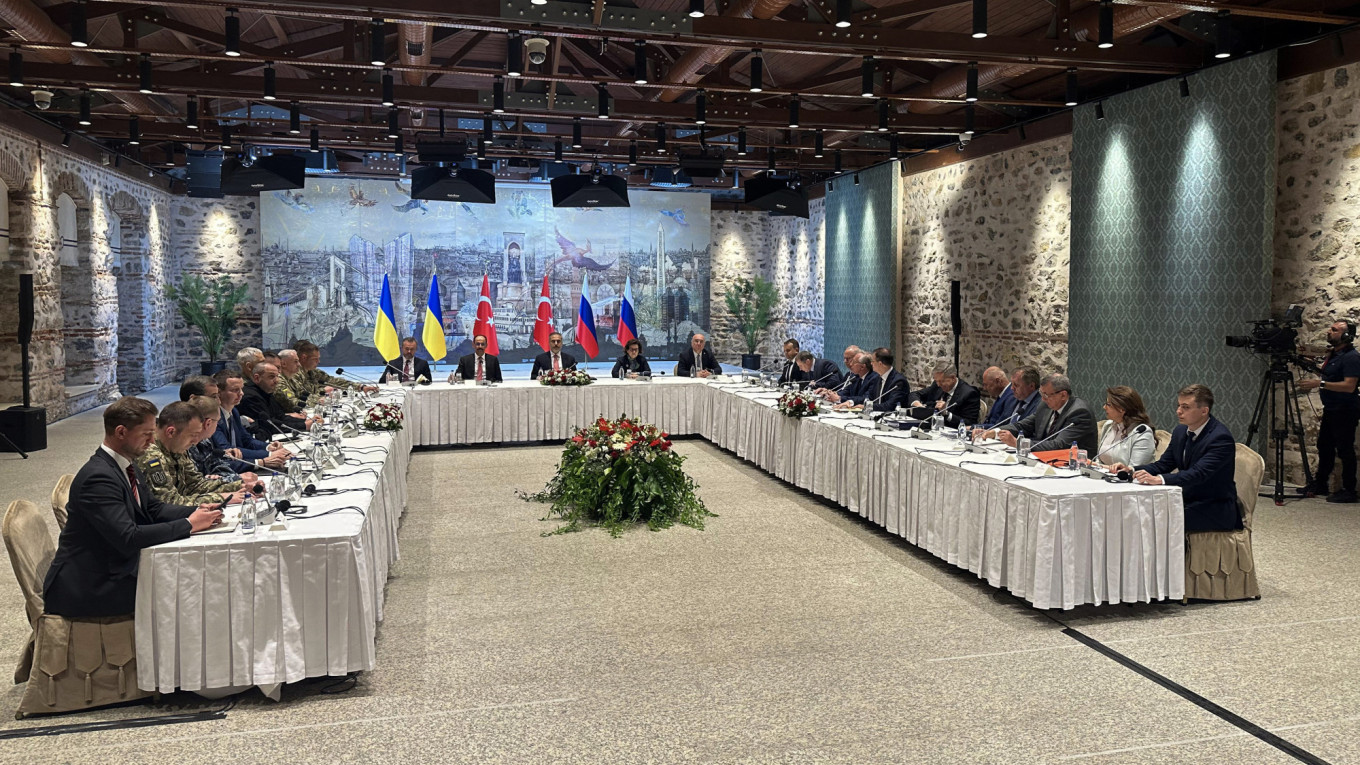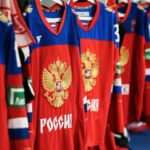Russia and Ukraine have reached an agreement for a substantial prisoner exchange following their first direct peace negotiations since early 2022, which took place on Friday in Istanbul. However, it remains uncertain if any significant advancements were made toward resolving Moscow’s ongoing conflict in Ukraine.
After the nearly two-hour meeting at the Dolmabahçe Palace, Ukraine’s chief negotiator and Defense Minister, Rustem Umerov, announced to the press that both nations had consented to exchange 1,000 prisoners of war in the near future, although no specific date was mentioned.
Kremlin advisor Vladimir Medinsky, designated by President Vladimir Putin to lead the Russian delegation, confirmed the agreement and expressed his satisfaction with the discussions. He stated that Moscow is willing to engage in further direct negotiations with Ukrainian representatives and mentioned that the Kremlin would review Kyiv’s proposal for a meeting between Putin and Zelensky.
The discussions followed a morning session among officials from Turkey, the U.S., and Ukraine. The meeting between Russia and Ukraine commenced around 1:30 p.m. local time, opened by Turkish Foreign Minister Hakan Fidan, who urged the parties to reach a ceasefire at the earliest opportunity.
Following the initial remarks, the session was closed to the media.
While the prisoner exchange signifies a tangible result of the discussions, there appeared to be no progress toward a broader cessation of hostilities—something that Ukrainian President Volodymyr Zelensky and Ukraine’s Western allies have increasingly requested in recent weeks.
A source from Ukraine informed Reuters that Moscow’s demands during the talks were unrealistic and beyond anything previously discussed. The demands reportedly included ultimatums for Ukraine to withdraw from parts of its own territory in exchange for a ceasefire, as well as other “non-starters and non-constructive conditions.”
Zelensky, who met Turkish President Recep Tayyip Erdoğan in Ankara the previous day, decided not to attend the negotiations after Putin rejected his proposition for a face-to-face encounter. Consequently, Zelensky delegated Umerov to head Ukraine’s team.
The Russian delegation was led by former Culture Minister Medinsky, who also directed the unsuccessful peace talks in 2022. At that time, Kyiv accused Moscow of making demands that amounted to capitulation, including the recognition of territories under Russian occupation and a significant reduction of Ukraine’s military capabilities.
On Thursday, Zelensky dismissed the Russian negotiation team as merely “decorative,” claiming they lacked the authority to make decisions. Medinsky, in a brief statement to the press, asserted that he and his team “have the power to make decisions” and regarded Friday’s meeting as a continuation of the discussions from 2022.
Zelensky mentioned that the Ukrainian team would aim for at least initial steps toward de-escalation and an end to the conflict—namely a ceasefire—but expressed skepticism about Russia’s commitment to the negotiations. He indicated that if no progress was made, new Western sanctions might follow, stating: “We are waiting for a clear and strong reaction from our partners.”
Prior to the negotiations, U.S. Special Envoy for Ukraine and Russia Keith Kellogg met with Andriy Yermak, head of Ukraine’s presidential office, and both Foreign Minister Andriy Sybiha and Umerov were present. Officials from France, Germany, and the United Kingdom also took part in that meeting.
U.S. Secretary of State Marco Rubio was in Istanbul on Friday for the trilateral meeting with Turkish and Ukrainian officials. While he did not participate in the Russia-Ukraine talks, the State Department announced that Michael Anton, the Director for Policy Planning, would engage with the Russian delegation at a working level.
Rubio conveyed to reporters on Thursday that he had low expectations for the negotiations, suggesting that meaningful progress would likely require a meeting between President Donald Trump and President Putin. Trump, currently visiting the Middle East, has stated that “nothing’s going to happen until Putin and I get together.”
Interfax reported, citing an anonymous source familiar with the negotiations, that Russia opposed U.S. involvement in Friday’s talks with Ukrainian negotiators.
Just prior to the start of the discussions in Istanbul, the Kremlin indicated that Putin would be closely monitoring updates and maintaining communication with the Russian delegation.
“The president is receiving all information in real time. He’s being regularly briefed,” Kremlin spokesman Dmitry Peskov informed the press. “All necessary directives for the negotiation strategy, developed in the earlier mentioned meeting, are in place.”
When asked about Rubio’s assertion that progress in peace talks would require a face-to-face meeting between the U.S. and Russian presidents, Peskov concurred while emphasizing that such a summit requires careful planning.
“Contact between Putin and Trump is extremely significant in the context of resolving the Ukrainian issue. We naturally agree with this viewpoint. Its importance cannot be overstated,” he remarked.
Both Russia and Ukraine are demonstrating to Trump, who has advocated for a swift end to the conflict, that they are committed to seeking a diplomatic resolution.
However, after months of U.S.-led diplomacy and multiple rounds of mediated discussions, it appears that the two conflicting parties are no closer to achieving a peace settlement than they were prior to Trump assuming office in January.
Reporting by Reuters contributed to this article.

